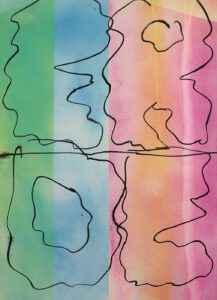
Jürgen Drescher
ERDE (I), 2018
290,0 x 210,0 x 2,0 cm | 114,2 x 82,7 x 0,8 inch
35.000,00 € excl. VAT
...Page is loading...
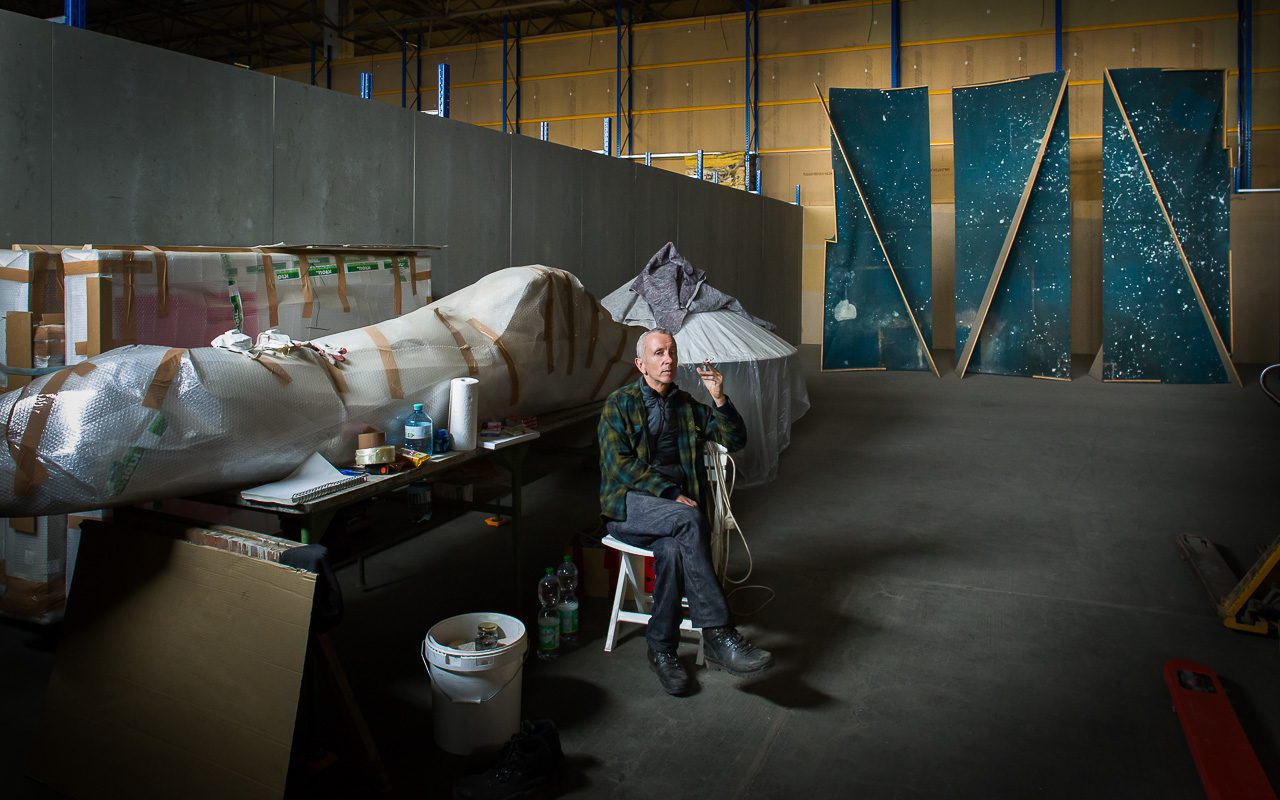
Jürgen Drescher’s studio in Berlin is filled with objects and materials that hint in one way or the other on the absurdity of the human species’ endless need to produce, wrap, communicate, consume, and reproduce. There are empty cardboard boxes in various states of unfoldedness cast in aluminum, gigantic clouds of styrofoam, oversized drain plugs, and a wrapped condom the size of a large square panel painting. Wooden signs deliver no...
Read moreJürgen Drescher’s studio in Berlin is filled with objects and materials that hint in one way or the other on the absurdity of the human species’ endless need to produce, wrap, communicate, consume, and reproduce. There are empty cardboard boxes in various states of unfoldedness cast in aluminum, gigantic clouds of styrofoam, oversized drain plugs, and a wrapped condom the size of a large square panel painting. Wooden signs deliver no message and show no direction, and silvery blobs form speech bubbles without content. The materials Drescher uses are mostly cheap, industrial, even vulgar, but their surfaces rendered shiny and seductive through highly elaborated and expensive coating processes.
Departing from the specific conditions of sculpture and its material, Drescher’s realistic-conceptual examinations raise deeply ethical questions regarding mankind as a species equipped with consciousness, and its simultaneous incapability of controlling the most trivial needs in regard to the global equilibrium. Drescher intentionally employs conventional figurative means such as carving and casting techniques as an aesthetic provocation to deliver content—the formability of consciousness, the (failed) attempts to appropriate nature through art and science—and at the same time demonstrating the limitations of artistic means. This is done however not without a sense of humor. “Realistic” sculptures of endangered animals such as tuna or gorillas, or Roadrunner piercing a dust cloud—in Drescher’s sculptures, deeply felt consent for all being is paired with a brutal sense of the absurdity of our existence and alleged progress, and sometimes a sonic wall needs to be sculpted to soften the outcry.
Eva Scharrer
All photographs © Gerald Imhof
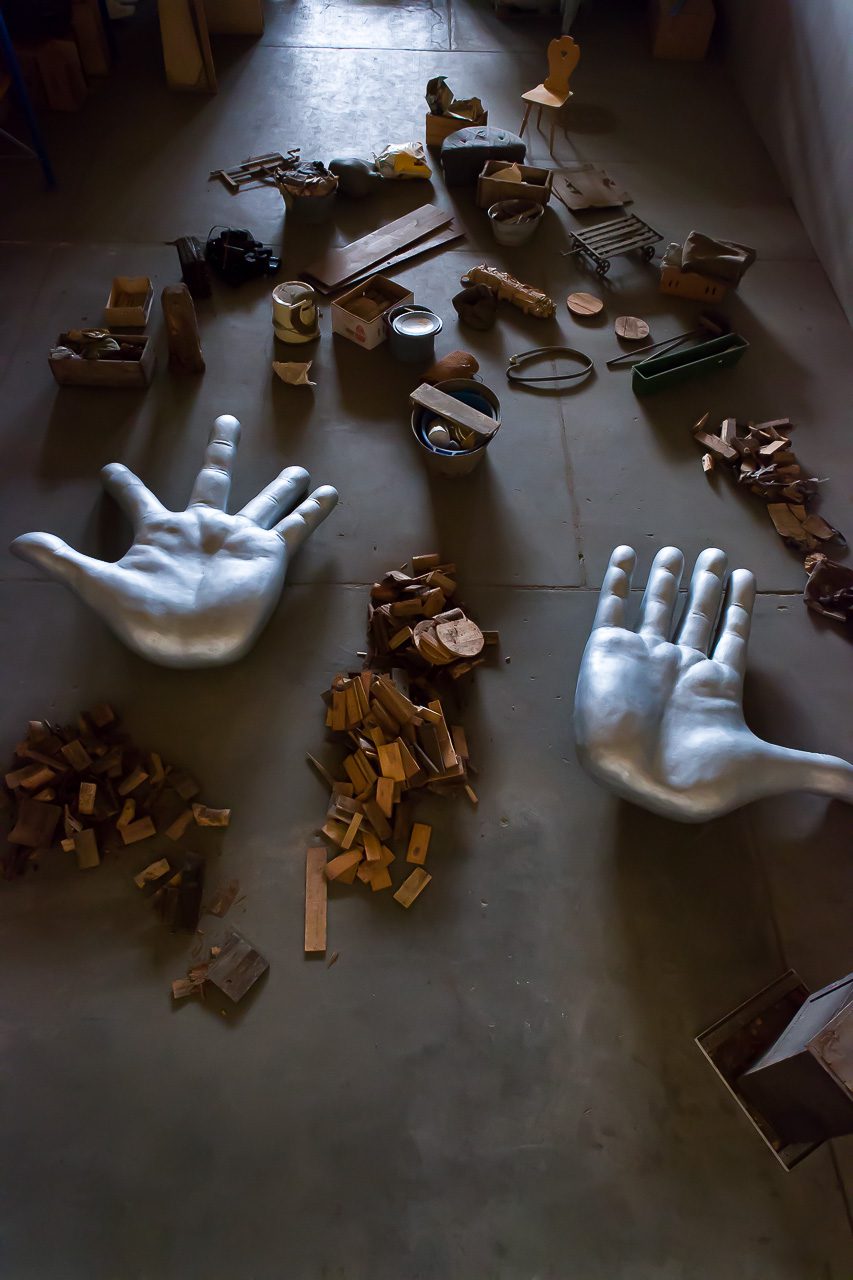
It will be like it was, 2012 | styrofoam, epoxy filler / mixed media | each 185 × 165 × 50 cm / dimensions variable
Monk, 2016
Camera: Johannes Kretzschmar
Art: Heike Bollig
Cook, 2016
Camera: Johannes Kretzschmar
Ceramics: Monika Drescher-Linke
Cook one tablespoon of mixed pumpkinseeds, sunflowerseeds and linseed, oatmeal, raisins, millet, amaranth and quinoa and a pinch of sea salt in 200 ml water. Leave it simmering on the lowest heat for 10 minutes, while drinking gunpowder green tea. After turning the heat off, let it soak for 20 more minutes, while doing your workouts, finally add ginger, fruits and cinnamon.
2018
KILL GRILL, Mai 36 Galerie, Zürich
2013
dig it, Badischer Kunstverein, Karlsruhe
Funklöcher, Mai 36 Galerie, Zurich
show all
2018
I dreamed I was leaving on a trip but I forgot my money, mit Reinhard Mucha, Sammlung Kasper König, Thomas Fischer, Berlin
Deutschland ist keine Insel, Sammlung Zeitgenössischer Kunst der Bundesrepublik Deutschland. Ankäufe von 2012 bis 2016, Bundeskunsthalle Bonn, Kat.
2016
House of Cardboards, Van Horn, Dusseldorf
show all
Mai 36 Galerie, Zurich
Jürgen Drescher, 2016, available through Büro für Film und Gestaltung, koch_andreas@gmx.de

290,0 x 210,0 x 2,0 cm | 114,2 x 82,7 x 0,8 inch
35.000,00 € excl. VAT
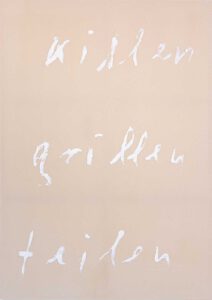
260,0 x 185,0 x 2,0 cm | 102,4 x 72,8 x 0,8 inch
30.000,00 € excl. VAT
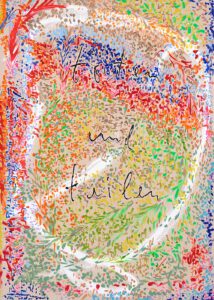
260,0 x 185,0 x 2,0 cm | 102,4 x 72,8 x 0,8 inch
30.000,00 € excl. VAT
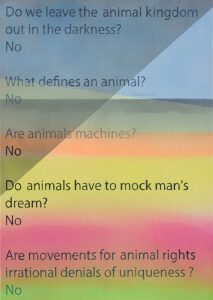
260,0 x 185,0 x 2,0 cm | 102,4 x 72,8 x 0,8 inch
30.000,00 € excl. VAT
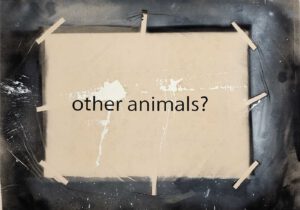
260,0 x 370,0 x 2,0 cm | 102,4 x 145,7 x 0,8 inch
55.000,00 € excl. VAT
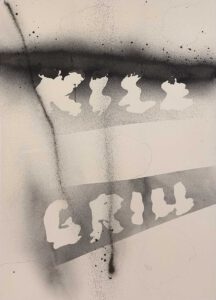
290,0 x 210,0 x 2,0 cm | 114,2 x 82,7 x 0,8 inch
35.000,00 € excl. VAT